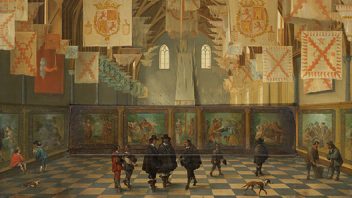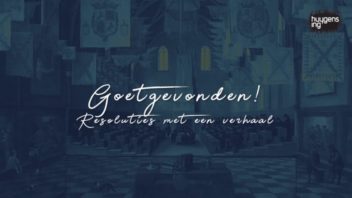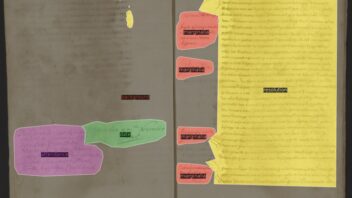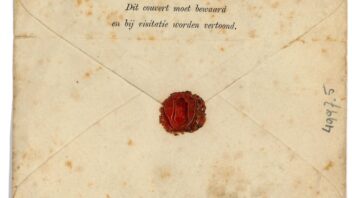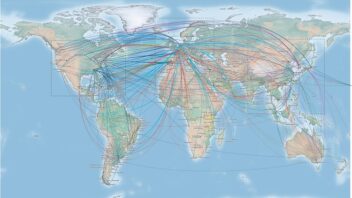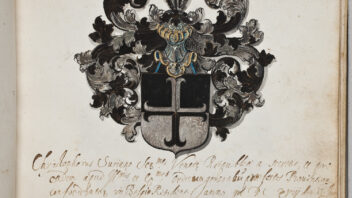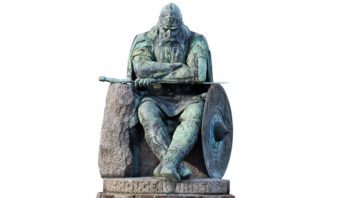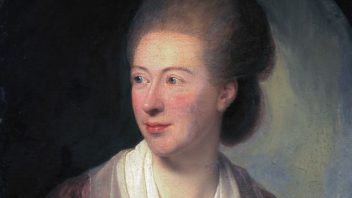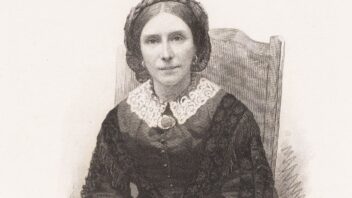Huygens Institute unlocks Dutch origin source
Innovative website Goetgevonden enables new research into the origins of the Netherlands
Amsterdam, 3 December 2024 – On 9 December, the Huygens Institute for Dutch History and Culture will launch the website Goetgevonden. This innovative website gives historians and interested parties access to the primal source of Dutch history that has been stored in the National Archives for centuries. Thanks to text recognition and AI, anyone can now find answers super-fast in hundreds of thousands of decisions of the highest administration of the Republic in the seventeenth and eighteenth centuries.
‘Is nae deliberatie goetgevonden ende verstaen’. This is how the Registrar recorded hundreds of thousands of decisions (resolutions) of the States General of the Republic of the Seven United Netherlands in the period 1576-1796. Over the past five years, with an NWO grant, the Huygens Institute unlocked this extensive collection using citizen science, innovative digital techniques and AI. The result is the website Goetgevonden.
Goetgevonden enables pioneering historical research into the origins of the Netherlands. Students, researchers and history enthusiasts can now gain insight into politics, diplomacy, warfare, trade and many other themes during the time of the Revolt against Spain and the early modern Republic. The dilemmas and struggles of this lone republic in a Europe full of kingdoms can now be followed from day to day from behind a computer.
From resolution books to layered search
To make this possible, the National Archives in The Hague scanned the resolution books in which the decrees were recorded. Then the Huygens Institute, in cooperation with the developers of the KNAW Humanities Cluster, converted the scans with handwritten and printed ancient Dutch into computer-readable text. This was done with the open source transcription tool Loghi, which was developed for this purpose.
Using various clever techniques, the transcriptions first identified individual sessions and decisions, and then also entries of places and personal names, for example. Two centuries of language change and the absence of a standard spelling posed additional challenges, as words occurred in numerous variants.
This enrichment allows users to search the acts in a layered manner. Searches can be refined with filters that help select the most relevant results. The original scans and the generated text can be viewed side by side. Additional information on politicians and diplomats named in the decisions is also available.
International forerunner
Within the project team that created Goetgevonden, cooperation was exceptional. Researchers, developers and data managers thought about methods to recognise text patterns, built the underlying infrastructure and created order in millions of text elements. Indispensable was the contribution of dozens of volunteers, who helped train the computer at every step. In this project, processes that had been done manually in the humanities for centuries were automated and applied to a large quantity of handwritten text. With this, a next phase in the opening up of archives has begun – also internationally.
Historical mission
With the publication of all resolutions of the States General, the Huygens Institute completes a historical mission. From the beginning of the 20th century, such an integral edition was dreamt of and partial editions appeared: first in print and later also digitally. These editions consisted of selective edits of the acts. But in more than a hundred years, resolutions from only a quarter of the entire period were actually published. The way this was done no longer matches contemporary research practice.
The website Goetgevonden opens new doors for anyone interested in history, from curious enthusiasts to professional researchers. This innovative search application allows people to decide for themselves what is relevant. Whether someone wants to know more about known and unknown people, local history, or the big picture of historical developments, the website provides access to a wealth of information.
Thanks to this new search application, historians and enthusiasts can get started in a variety of fields. For example, users can discover how decision-making processes took place in the early modern era, how political networks took shape, and how different provinces related to each other in terms of wealth and power. Goetgevonden also offers opportunities for research into the competition between army and fleet, the role of colonies, the changing relationships between states, or the handling of petitions by the States General.
Those who search Goetgevonden themselves will notice it immediately: this is an enormously powerful tool with possibilities that were unthinkable until recently. The website is therefore a historical sensation for anyone who wants to understand more about the past.


